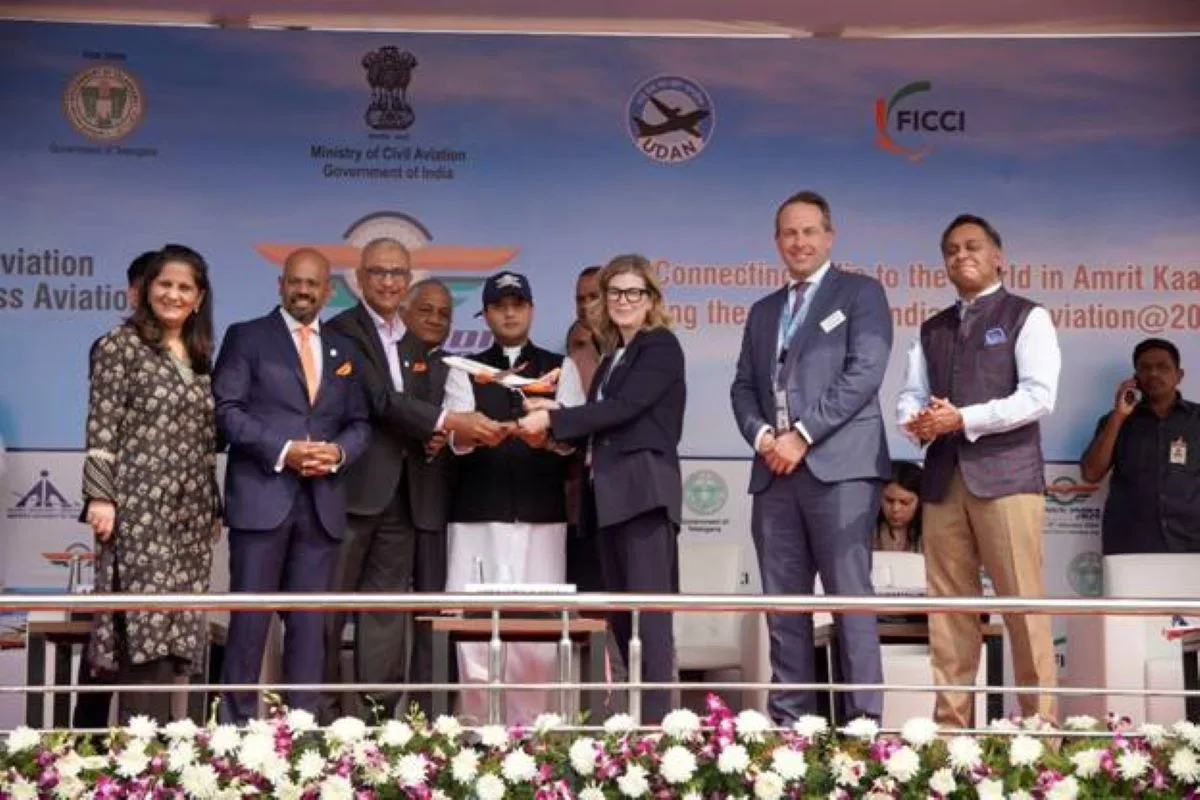
Wings India 24 Soars High: Union Minister Inaugurates Global Aviation Summit in Hyderabad
The much-anticipated ‘Wings India 24’ event, Asia’s largest gathering in the Civil Aviation sector, commenced today with a grand inauguration at Begumpet Airport in Hyderabad. The four-day extravaganza, focusing on commercial, general, and business aviation, unveiled under the theme ‘Connecting India to the World in Amrit Kaal: Setting the Stage for India Civil Aviation @2047.’ The inaugural session of the Global Aviation Summit was officiated by the Union Minister of Civil Aviation and Steel, Jyotiraditya M. Scindia.
During the opening ceremony, Minister Scindia emphasized the unifying philosophy of ‘Vasudhaiva Kutumbkum,’ highlighting the aviation sector’s role in connecting the world as one family while catering to the aspirations of ordinary citizens to fly. He underscored the aviation sector’s pivotal role in driving economic development, citing its remarkable growth in emerging economies.
The aviation economy, according to Scindia, plays a vital role in facilitating tourism, trade, connectivity, generating economic growth, creating jobs, and providing essential services to remote communities, especially during unprecedented situations.
Speaking about India’s impressive growth in the civil aviation sector, Minister Scindia stated, “India is the shining star in the Civil Aviation landscape.” He pointed out that the total number of domestic passengers had surged from 60 million in 2014 to 143 million in 2020, with a compound annual growth rate (CAGR) of 14.5%. The Minister projected that the number would surpass 150 million in 2023. Despite this growth, he highlighted that India remains an under-penetrated market, and even with projections reaching 635 million domestic passengers by FY 2030, the country would still be one of the least penetrated among the 20 largest markets.
Minister Scindia outlined the government’s commitment to building state-of-the-art aviation infrastructure for the future. Under the guidance of Prime Minister Shri Narendra Modi, he emphasized the steps taken to create capacities, remove bottlenecks, and simplify processes, aiming for an aviation system that supports a USD 20 Trillion economy by 2047. The government has doubled the number of airports in the country in the last nine years, with 21 Greenfield Airports receiving ‘in-principle’ approval, and 12 of them already operational.
Under the Prime Minister’s flagship scheme RCS-UDAN, 76 airports in Tier-3 and Tier-4 cities, as well as remote corners of the country, have been operationalized to enhance last-mile connectivity. Minister Scindia highlighted the success of UDAN in unlocking the true potential of the country, transforming airstrips and airports that had languished since the 2nd World War.
Several major announcements were made during the Wings India 24 event, including the release of a joint knowledge paper on civil aviation by FICCI and KPMG, the launch of UDAN 5.3, the inauguration of the Airbus-Air India Training Centre, and significant contracts between Airbus and TATA ASL and Mahindra Aerospace Structures Pvt. Ltd.
GMR and IndiGo also joined forces to collaborate on sustainable training in the aerospace industry, and the GMR School of Aviation was inaugurated. Additionally, Akasa Air made a groundbreaking deal, announcing a triple order of 200 aircraft in a period of 17 months. Wings India 24 promises to be a transformative event for the civil aviation sector, showcasing India’s commitment to fostering growth, connectivity, and innovation in the dynamic world of aviation.






